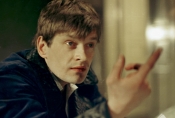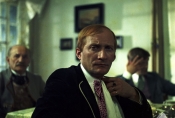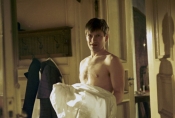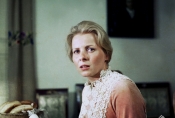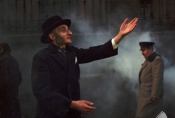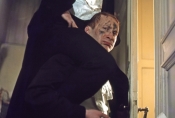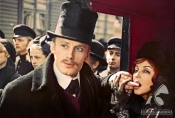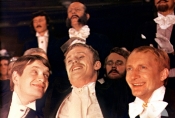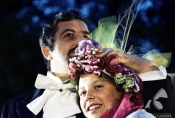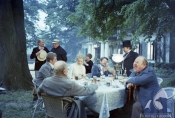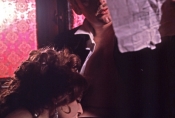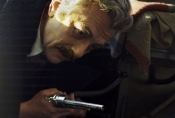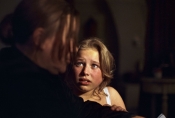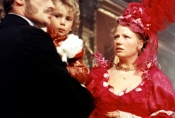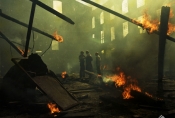THE PROMISED LAND [1974]
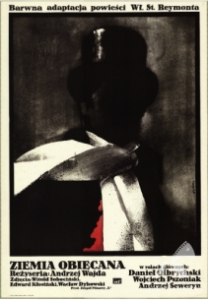
year:
- 1974
release date:
- 21 II 1975
runtime:
- 179 min
directed by:
- Andrzej Wajda
written by:
- Andrzej Wajda based on the novel by Władysław Reymont
director of photography:
- Witold Sobociński, Edward Kłosiński, Wacław Dybowski
cast:
- Daniel Olbrychski [Karol Borowiecki], Wojciech Pszoniak [Moryc Welt], Andrzej Seweryn [Maks Baum], Kalina Jędrusik [Lucy Zuckerowa], Anna Nehrebecka [Anka], Bożena Dykiel [Mada Mueller], Andrzej Szalawski [Herman Buchholz], Stanisław Igar [Gruenspan], Franciszek Pieczka [Mueller], Kazimierz Opaliński [Max’s father], Andrzej Łapicki [Trawiński], Wojciech Siemion [Wilczek], Tadeusz Białoszczyński [Karol’s father], Zbigniew Zapasiewicz [Kessler], Jerzy Nowak [Zucker], Piotr Fronczewski [Horn], Jerzy Zelnik [Stein]
edited by:
- Halina Prugar, Zofia Dwornik
music by:
- Wojciech Kilar
production design:
- Tadeusz Kosarewicz
produced by:
- Zespół Filmowy „X”
executive producer:
- Barbara Pec-Ślesicka, Janina Krassowska
awards:
-
• IFF Chicago (USA ) 1975 : Grand Prix Gold Hugo
• Polish Feature Film Festival Gdynia 1975: Grand Prix Golden Lion, best male performance in a leading role award for Wojciech Pszoniak, best stage design award for Tadeusz Kosarewicz, best music award for Wojciech Kilar
• International Film Forum "Man-Work-Creativity" Lublin 1975: Audience Award
• Lubusz Film Summer Łagów 1975: Grand Prix Golden Grape , the Award of the Arthouse Cinema Coordinating Arts Council
• IFF Moscow ( Russia) 1975: Gold Medal
• Warsaw Mermaid 1975
• Award of the Minister of Culture and Arts of the 1st degree 1975 for Andrzej Wajda
• The "Filmcritica" award 1975
• IFF Brussels (Belgium) 1976 : 2nd Journalists’ Award
• IFF Belgrade (Serbia ) 1976: award for set design for Tadeusz Kosarewicz
• nomination for the Academy Award Oscar 1976: best foreign film
• IFF Valladolid 1976: Grand Prix Golden Ear
• Overview of Socio-Political Film Łódź 1977: Grand Prix
• IFF Cartagena (Spain) 1977: 1st prize, best director award for Andrzej Wajda
• IFF Avellino (Italy) 1978: 1st prize Gold Laceno
• Golden Duck 1996
• 4th place in the "Polityka" poll 1999: "The most interesting Polish films of the twentieth century"
• 50th Anniversary Golden Duck, 2007: the best film
About the film
An adaptation of the novel about Łódź during its budding capitalism became Wajda's farewell to the Polish romantic and noble utopia. Tracing the history of a dream of a great fortune coming true, the director presents the naturalistic Baroque synthesis of moral attitudes in a ruthless, vulgar struggle for money. The vision of the film oscillates between realistic reconstruction and Baroque symbolism, combined with detailed descriptions of the industrial giant, where a love of money and ruthlessness in satisfying one’s own cravings goes well below standards of ethics and culturally acceptable behaviour.
Three friends: a Pole − Karol Borowiecki, a German − Max Baum, and a Jew − Moryc Welt, want to set up a textile factory in Łódź. To achieve this goal, they must use different tricks which are required of them by ruthless Łódź industrialists − the cotton tycoons. After a fire in their newly built spinning mill, they go their separate ways. Karol abandons his noble ideals, breaks his engagement with Anka, and marries Mada, the daughter of the biggest Łódź manufacturer – Mueller – in order to take over the largest fortune in the town. In the last scene, Borowiecki makes a decision on the textile workers’ strike, issuing orders to shoot in the direction of the crowd.
Jan Słodowski, Leksykon polskich filmów fabularnych, Warszawa 1996
Articles
-
The Splendour of Male Relationship
Sebastian Jagielski
„Kwartalnik Filmowy” – Special Issue 2013: “Polish Film Scholars on Polish Cinema”
